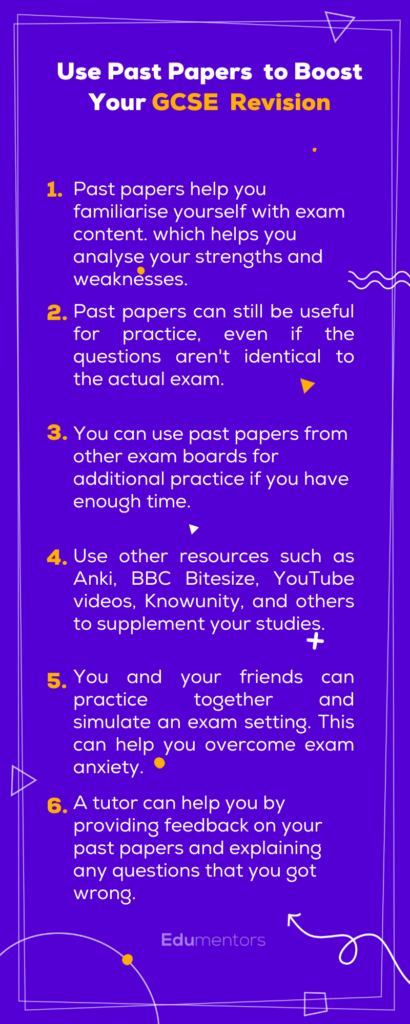AQA GCSE Combined Science
| Years | Question Papers | Assessment |
| November 2020 | Higher Tier Paper 1 | Mark Scheme |
| November 2021 | Foundation Tier Paper 1 | Mark Scheme |
| June 2022 | Higher Tier Paper 1 | Mark Scheme |
| June 2023 | Foundation Tier Paper 1 | Mark Scheme |
OCR Combined Science
| Years | Question Papers | Assessment |
| November 2020 | Foundation Tier Paper 1 | Mark Scheme |
| November 2021 | Higher Tier Paper 7 | Mark Scheme |
| June 2022 | Foundation Tier Paper 2 | Mark Scheme |
| June 2023 | Higher Tier Paper 8 | Mark Scheme |
| June 2024 | Foundation Tier Paper 3 | Mark Scheme |
WJEC GCSE Combined Science
| Years | Question Papers | Assessment |
| November 2020 | Foundation Tier Paper 1 | Mark Scheme |
| November 2021 | Higher Tier Paper 7 | Mark Scheme |
| June 2022 | Foundation Tier Paper 2 | Mark Scheme |
| June 2023 | Higher Tier 8 | Mark Scheme |
| June 2024 | Foundation Tier 1 | Mark Scheme |

FAQs:
What is GCSE Combined Science?
GCSE Combined Science is a qualification that covers the basics of biology, chemistry, and physics. It is a course typically taken by students in the UK at the end of their secondary education, usually at the age of 16. The course provides a broad overview of the three sciences, allowing students to develop their scientific knowledge and skills across a range of topics. At the end of the course, students are assessed through written exams that cover all three sciences. The qualification can be a good foundation for further study in the sciences, although students who wish to pursue a career in a particular science may benefit from taking GCSE Triple Science.
What is the Difference Between GCSE Combined Science and GCSE Triple Science?
The main difference between GCSE Combined Science and GCSE Triple Science is the level of depth in which each science subject is covered. GCSE Combined Science covers the basics of all three sciences in one qualification, while GCSE Triple Science covers each science in more depth, leading to three separate qualifications in biology, chemistry, and physics.
In GCSE Combined Science, students will study topics such as cell biology, atomic structure, and forces and motion. In contrast, GCSE Triple Science students will study each of these subjects in greater depth, covering topics such as genetics, organic chemistry, and thermodynamics.
GCSE Triple Science is often a preferred option for students who wish to pursue a career in science or further study in a particular field, as it provides a more comprehensive understanding of each subject. However, GCSE Combined Science can still provide a solid foundation in the sciences and may be a more appropriate option for students with a wider range of interests or career aspirations.
What are the Topics Covered in GCSE Combined Science?
GCSE Combined Science covers the basics of three main sciences: biology, chemistry, and physics. The specific topics covered in each of these sciences may vary depending on the examination board and the school’s curriculum, but some common topics include:
- Biology – Cell biology, ecology, genetics, human biology, and evolution.
- Chemistry – Atomic structure, bonding, chemical reactions, organic chemistry, and the periodic table.
- Physics – Energy, forces, motion, waves, electricity, and magnetism.
In addition to these core topics, students will also learn about scientific investigation, including practical skills such as planning experiments, collecting data, and analyzing results. Students will also develop their scientific skills in areas such as data analysis, communication, and problem-solving. Practical work is an essential part of the course, and students will be required to complete a range of experiments and investigations to support their learning.
What are the Entry Requirements for GCSE Combined Science?
The entry requirements for GCSE Combined Science may vary depending on the school or college. However, most schools and colleges will require students to have a good understanding of maths and English as they are fundamental skills needed for the sciences.
In general, the entry requirements for GCSE Combined Science are usually set out by the examination board, and students will typically need to achieve a minimum level of proficiency in maths and English before they can enroll in the course. Schools may also require students to have studied science at Key Stage 3 or have achieved a certain level in a science subject at an earlier stage.
It is important to check with your school or college for their specific entry requirements for GCSE Combined Science, as these can vary depending on the institution. Students who are unsure about their eligibility for the course should speak to their teacher or guidance counselor for advice.
How Should I Revise for GCSE Combined Science?
Preparing for GCSE Combined Science can be challenging, but there are several effective revision strategies that students can use to improve their understanding of the subject matter and achieve their desired grade. Many of these strategies will also serve students well when they progress to A-level Science studies. Here are some tips on how to revise for GCSE Combined Science:
- Develop a study plan. Creating a study plan can help you to stay organised and focused during your revision. Divide your time between the different sciences and allocate sufficient time for each topic.
- Use past papers. Past papers are a great way to practice for the exams, as they give you an idea of the types of questions you can expect to see. Practice questions will also help you to identify areas of weakness that you need to focus on.
- Get a tutor. If you are struggling with any particular topic, consider hiring a tutor to help you. A GCSE Science tutor can provide one-on-one support and can help you to understand the subject matter in greater depth.
- Revise actively. Passive reading of your notes is not enough. Try to actively engage with the material by creating flashcards, summarising notes in your own words, and practicing recall using quizzes and practice papers.
- Make use of online resources. There are many online resources available that can help you to revise for GCSE Combined Science, including websites, podcasts, and YouTube videos. Make sure to choose resources from reputable sources.
- Practice practical skills. Practical work is an essential part of the course, so make sure you are comfortable with carrying out experiments and investigations. Practice practical skills by carrying out experiments at home or in school.
In summary, revising for GCSE Combined Science requires planning, active engagement with the material, and the use of various resources, including past papers and tutors. Make sure to allocate sufficient time for revision, practice practical skills, and seek help when needed. With hard work and dedication, you can achieve success in your GCSE Combined Science exams.








